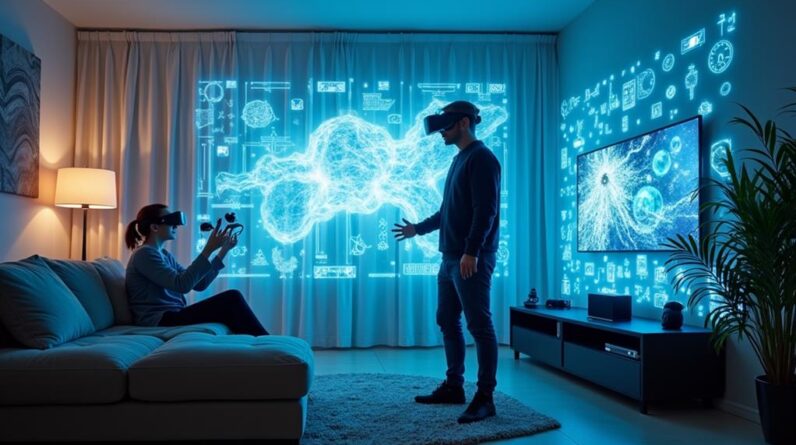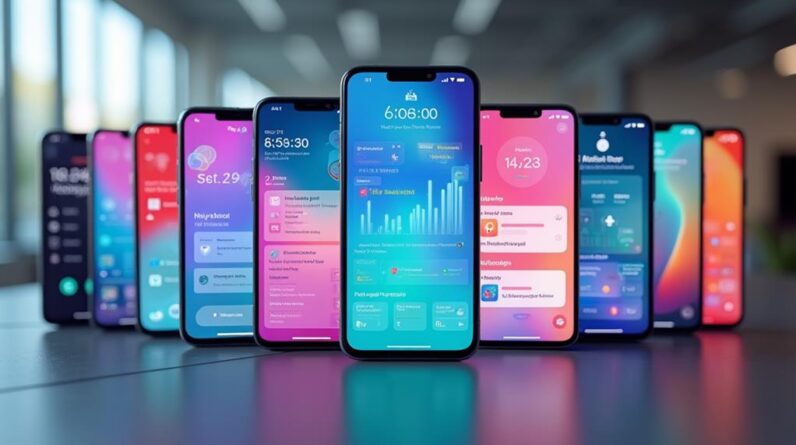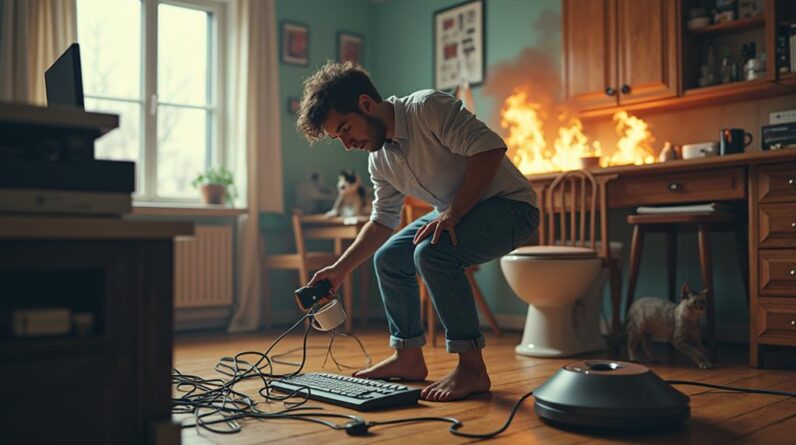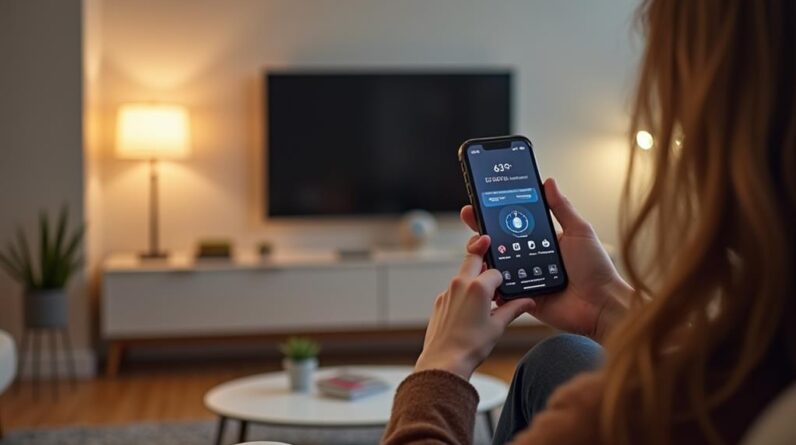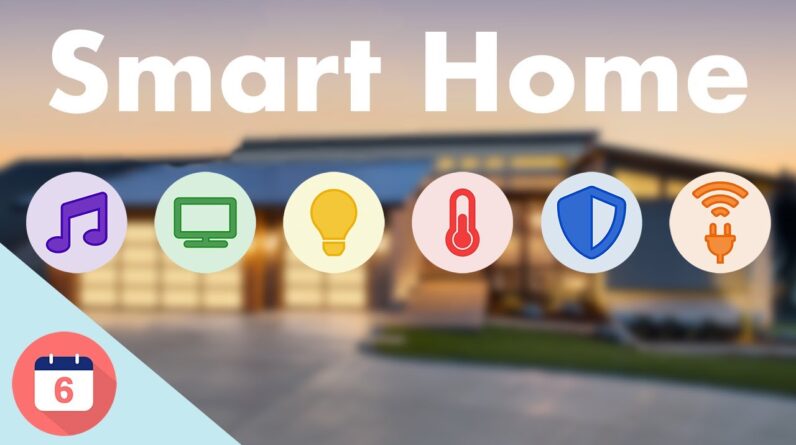
When it comes to building a smart home in
2021, there are now more options than ever before. So in this video, I'm gonna walk you through
how to go about building a smart home, what's new in the world of smart home tech for 2021,
and then ultimately my recommendations on some of the best platforms and how to build
a smart home. So let's dive in and the first thing that
we need to talk about is the first step that you do when deciding to build a smart home,
which is which Platform you're going to use to run all of your smart home devices. There are two main directions to go here. The first is you can go with an integrator
which is a company who will come in and install everything for you and give you the platform
that everything runs on. Some of the more popular platform companies
like this will use Control4, Savant, and Crestron which all mainly target the luxury home market. The second is by using platforms like the
Google Assistant, Amazon's assistant, Apple's HomeKit, Samsung’s SmartThings, Wink, and
then other smaller platforms like the open source home assistant platform, which is mainly
targeted to people who are very tech savvy and like to tinker a lot with their home electronics.
Now the big three platforms right now in my
book are Amazon's assistant, Apple's home kit, and the Google Assistant and the reason
I picked these three is because each of them contain a pretty powerful smart assistant. Now, why is having a smart assistant so important
in your smart home platform? Well aside from making it feel like you live
on the Starship Enterprise, having a smart assistant being able to control all of your
smart home devices is super convenient. So, for example, you don't have to carry your
phone around with you everywhere you go to control the lights or other devices and you
don't have to walk up to a specific display like on a thermostat or another third-party
screen to control all of your devices. You can control them from wherever you are
in your home by just using your voice. Now with quite a few options, you may be asking
yourself do I have to choose just one assistant platform, or could I use multiple ones? You can use more than one in your home, you'll
just need to make sure that the one that you are using can control all of your smart home
devices because not all smart devices can be controlled by the big three assistant platforms.
The reason not all devices work on each of
the big three platforms is historically the platforms have had different standards for
how to communicate with them and Apple has usually been the stickler for requiring specific
hardware requirements for devices to work with their HomeKit platform. Which is why you’ll see some devices that
work with the Google Assistant or Amazon Assistant but not with HomeKit. Apple has relaxed some of the hardware requirements
for HomeKit devices, so hopefully that'll open it up to more smart home devices out
there.
Plus Amazon, Apple, Google, and the Zigbee
Alliance have all decided to come together and form a working group called Project Connected
Home Over IP, which plans to develop and promote the adoption of new royalty-free connectivity
standards for smart home products that put security as a fundamental design tenant. So, what does this mean for you as a user? Well, As time goes on and you buy new smart
home devices, those smart home devices should work with all of the major platforms out there
because these platforms have joined together and agreed upon universal communication standards
for smart home devices. Now, what is Zigbee you may ask? With Smart Home devices there are actually
several different technologies at play depending on the smart devices you use. Some devices will use Wi-Fi or Bluetooth which
you’ve probably heard of while others rely on ZigBee, Z-Wave, or Thread. Zigbee is probably the most popular one of
these out there so I'll use that for my example. Now in simple terms these are local mesh networks
that typically consist of a hub that is directly wired into your router and your devices, you
can think of them like they’re daisy changed together.
So, for example, when your Zigbee hub sends
out a signal to one Zigbee device that device will then carry on that signal to all of the
other Zigbee devices in your network. The benefit of these types of systems is they
typically have more range than a Wi-Fi network with one router. The only downside is you'll need to have a
hub to control your Zigbee or other similar type of network and sometimes different smart
devices will require different hubs. For example, in my home my Lutron Smart blinds
are connected directly to the Lutron hub which is wired into the router and my Philips Hue
lights are connected to my Philips hue bridge which is a hub that is also connected into
my router. Now recently, with a popularity of smart assistant
platforms like the Google Assistant, Amazon's assistant, and Apple's Homekit, hubs have
become more and more unnecessary to control your smart home devices because many of the
devices today will just directly connect to your Wi-Fi network with the only downside
being when your Wi-Fi goes down, you'll lose the ability to be able to control your smart
home devices.
For the everyday consumer, I don't think you're
going to need to worry about whether or not your smart home device uses Zigbee, Bluetooth,
or Wi-Fi. For most consumers the simple thing to do
is to decide on the platform that you want to run your smart devices on and buy smart
devices that are certified to work with that platform. Now, if you're the type of consumer that likes
to tinker with technology, or you just want more control over your smart home then yes,
I do think you should pay more attention to the technology that you're smart home devices
are using. All right now that we've gone through the
different platforms and the different types of technologies used in smart home setups,
let's talk about what types of smart home devices you can use in your home. In general, I break it down into these categories:
music, media, lighting, climate, security, and appliances.
First let's look at music with whole home
audio. This type of functionality allows you to play
music and media throughout your home typically using smart speakers that run voice assistants
and you do have quite a few options here. Amazon, Apple, and Google, all make their
own smart speakers, that will play various music streaming services natively on the speaker
itself. There are also third party speaker systems,
you can buy from companies like Sonos and Bose that can work with all three companies’
platforms.
Some Bose and Sonos speakers will even allow
you to have Alexa and the Google Assistant directly on their speakers. We've done reviews on quite a few smart speakers,
including the Google Nest Mini, Nest Hub, Nest Hub Max, Nest Audio, Google Home Max,
Amazon Echo, Amazon Echo Dot, and the HomePod Mini. The Google Nest Hub and Amazon Echo Show have
the added benefit of having a screen on them, which makes controlling your media as well
as other smart home devices even easier.
If you're interested in learning more about
any of these devices, I'll leave links to videos that we've done on them in the video
description below. Next, let's take a look at how to control
media rooms within your smart home. Now typically this involves controlling a
TV or projector associated speakers and then the lighting of your media room but we'll
get to lighting in just a second. Right now Apple, Amazon, and Google make the
best TV streaming devices that will enable you to turn on and off your TV and related
devices with an assistant. They all deliver content from major streaming
services and some can support the latest formats like 4K HDR with Dolby Vision and Dolby Atmos.
Google and Amazon's devices are typically
around $30 to $70 US dollars while the Apple TV 4K runs a bit more at $179 US dollars. The Chromecast with Google TV and Apple TV
in particular make it really easy to stream content from your device's directly to the
TV by using either Apple's AirPlay or Google's casting feature. Personally, I use both the Apple TV and the
Chromecast with Google TV and I love being able to ask the Google Assistant or Siri to
turn off the TV and you can do that with just your voice with these devices, and it will
not only turn off the TV but because it uses HDMI CEC the TV the receiver and either the
Apple TV or Chromecast will also turn off as well. Next up, let's talk about smart lighting and
this category is particularly interesting because neither Apple, Amazon, nor Google
produce their own smart lights unlike with the speaker and media device categories. There are generally two approaches to doing
smart lighting within your smart home. You can either make the light bulb smart or
you can make the switch that controls the light bulb smart.
And you can use a combination of these approaches
as well. The main players in smart lights right now
are Philips, GE, LifeX, Ikea, and Eufy. These smart light makers make LED bulbs that
are typically in three categories: plain white, bulbs that go from daylight to warm light,
or multicolored bulbs. Sometimes the bulbs will use Bluetooth or
Wi-Fi or other types will need a ZigBee hub or something else that connects into your
router.

Smart lights can save you a lot of time. You can turn off all your lights by just using
your voice at night, you can control your lights through a smartphone app and you can
set up routines for your smart lights as well. For example, I have mine to set to automatically
fade in over 30 minutes in the morning and then I have them display sunrise colors. I'll have them automatically change to daylight
during the workday and then change to a warmer hue in the evenings. You can even have them use your location and
use geofencing technology to turn on and off your lights when you come home and leave. There are also other accessories you can get
with your smart lights like wireless dimmer switches that you can assign to control a
variety of lights in your residence.
Philips Hue probably has the most accessories
and smart lights available today and they're the brand that I have in my residence. We did a review of them that I've linked below
in case you're interested. For Smart Light switches some of the popular
brands out there are WeMo, Casa, Ecobee, and Lutron. These switches connect to your home's Wi-Fi
network and replace the switch you have in your existing wall allowing you to either
control the lights with the switch or with a phone app or with a smart assistant. These are a good option if you're doing a
remodel or building a new home and you need to put in light switches anyway, or if you
have a light fixture that you just don't want to put smart bulbs in or can't find the right
smart bulb size to put in.
Next let's talk about climate control within
a smart home and here we're mainly going to talk about smart thermostats. These are Wi-Fi connected thermostats that
can be controlled by your smart assistants. Most smart thermostats will work with each
of the big three smart platforms and they're installation is typically pretty easy. Some popular ones include the Nest learning
thermostat made by Google, the Ecobee4, which Amazon has a sizable stake in and various
other ones as well, like from big name brands like Honeywell.
Some you can program like more traditional
thermostats with a weekly schedule while others like the Nest Learning Thermostat, learn your
pattern and use AI to predict what the temperature should be set to. Most now allow you to stick sensors in different
rooms around your house to aggregate the temperature data in your home to give you a true home
temperature. Next, let's talk about smart home security
systems. The options here will vary greatly depending
on your location. Here in the US, you can choose to go with
the service from large brands like Brinks, ADT, and CPI, or you can do a more do-it-yourself
route by doing the install of the sensors base station cameras and supporting equipment
yourself.
Some companies that allow you to do this are
Ring and SimpliSafe. They allow you to do the install and placement
of security devices but also have a monitoring service as well. Nest is another large brand in the home security
space, but the company recently discontinued their Nest Secure alarm system at the end
of 2020 and earlier in the year, they struck a deal with ADT where Google invested 450
million dollars in the company.
So you can expect more to come in this space
from Google's Nest brand. The last option with Smart Home Security is
a complete do-it-yourself route without a monitoring service which opens you up to a
lot of other third-party devices out there, especially with cameras. Just make sure you buy cameras from a company
that you trust with your privacy and you also want to make sure that the cameras you buy
are compatible with these smart home platform that you've chosen because being able to tell
the Amazon Assistant or Google Assistant to bring up a video feed on a display or tell
Siri to arm the system, makes using these systems much more convenient.
The last and final category of smart home
devices is a catch-all category that I like to call appliances and accessories. There are so many devices in this category
and it grows larger and larger every year. The basic concept is that these are devices
like your typical home appliances like your stove, refrigerator, washing machine. But also home accessories that can connect
to your smart home platform like smart blinds, robotic vacuum cleaners, smart scales, smart
plugs, etc. My go-to smart home accessory over the past
few years has been smart plugs. They turn any appliance into one that can
be simply turned on or off by any of the major smart home platforms. They're especially handy when it comes to
holiday decorating. For example around the Christmas time frame
I use about five to eight smart plugs to link all of my holiday lights to the Google Assistant. Once you've chosen your smart home platform
and start buying devices for your smart home, you're just going to be amazed at how easy
it is to automate some of the most mundane parts of your life.
Like turning off the lights in every room
of your house with your voice, having your Roomba clean the kitchen after cooking or
do things you could only have dreamed of years ago, like having blinds that automatically
close at sunset or adjust their tilt throughout the day based on the angle of the sun. Most of the major smart assistant platforms
have routines and automations that you can create within the platform to help automate
all of your devices.
So, for example, when you come home, your
lights can automatically come on, your thermostat turns up, and your speakers start playing
the latest news from BBC or NPR. Or when you start getting ready for bed your
thermostat lowers the temperature, the lights turn to a sunset color and slowly dim over
30 minutes, the blinds close, your bedroom fan turns on, and your assistant tells you
what's on your calendar for tomorrow and then starts playing ambient sounds of the forest
to help you drift off to sleep. This level of customized automation is no
longer a dream. It's attainable and accessible to millions
of people out there, thanks to these smart home platforms and the thousands of devices
that run on them. Smart home tech has the potential to really
change our lives for the better and it's an important part of what we do here at 6 Months
Later Reviews.
So if you'd like to learn more about a particular
smart home device, we may have already done a video on it or are about to. So, make sure you subscribe to the channel
to see more videos of smart home products and tech like this video and if there's a
particular device that you'd like to see us do a video of make sure you leave a comment
below to let us know. Well, I hope you found this video helpful
and informative and if you did and liked it, make sure you hit that thumbs up button below. Well, that's gonna do it for me. For 6 Months Later, I'm Josh Teder. Thanks for watching..
As an Amazon Associate I earn from qualifying purchases.



